
Chill Southend
Based on Joscelyne’s beach, Chalkwell, we offer a welcoming, safe and supportive way to access all the health benefits of cold water immersion.
Please don’t hesitate to ask us if there is anything that is not clear or if you would like more information.
Part 1 explains the purpose of this study and what will happen to you if you take part.
Part 2 gives you more detailed information about the conduct of the study.
What is the purpose of the study?
There is a developing evidence to suggest that open cold-water swimming could have an impact on depression and anxiety: -Anecdotal reports of the benefits to mental wellbeing as a result of regular open water bathing. -Immersion in cold water gradually reduces stress levels in everyday life and generates a greater sense of wellbeing. -Cold water may have an impact on the inflammatory system, which has been linked to depression. -Research suggesting exercise is as effective as medication and talking therapies in the treatment of depression. -Ecotherapy -offering therapeutic intervention in nature – also benefits mood and mental wellbeing
The primary aim of the study is to look at recruitment and engagement in the course.The secondary aim is to monitor changes in mental health and thus to explore if people with mild to moderate depression benefit from a sea swimming course.
Can you take part?
We are looking for participants who are:
Unfortunately, you will not be able to take part in the study if you:
Do you have to take part?
No. It is up to you to decide whether or not to take part. If you do, you will be given this information sheet to keep and be asked to sign a consent form. You are still free to withdraw at any time and without giving a reason.
What will happen to me when I agree to participate in this study?
The course will take place at Croyde Beach. You will complete two sessions a week over a 4-5 week period. You will be required to complete a baseline registration form on the webpage before you are recruited. You will then be contacted by one of the researchers to complete the consent form, so please ensure you have read this information leaflet in detail. Once you have given consent you will need to complete three quick mental health questionnaires before the start of the first session. These give a score for depression, anxiety and whether this affects your ability to undertake day-to.day tasks. These will be sent to you and if you have any difficulties the researchers can support you with the forms.
You will meet outside the lifeguard hut on Croyde beach and will change into your swimwear and swim hats using the dryrobes provided. These are a loose, thermal dressing gown, which helps you to warm up and allows you to change whilst retaining your dignity.
Wetsuits will not be provided as the water will be warm and we encourage you to get the most benefit from the water. However, you are welcome to bring your own, although at the end of the session you will be encouraged to try without it.
You will then walk onto the beach down to the sea with 5 minutes of gentle stretching, followed by a small jog / walk.
You will then go into the water, to participate in some of the following activities:
The option of spending some time without a wetsuit at the end of the session The time in the water will be no more than 30 minutes. After exiting the sea, you will return to the beach and get changed using the dryrobes. Unfortunately, we will not be able to provide a hot drink due to the covid-19 restrictions however we encourage you to bring a hot drink in a thermos. You will also be asked to provide a small finger prick blood sample at the first and last session, in order to measure your levels of inflammation. You can opt out of this and this will only go ahead if safe to do so with regards to Covid-19 social distancing measures.
At the end of the study you will be asked to complete the same three questionnaires. The research team will support you if you need help.We willalso ask you to complete an evaluation questionnaire about your experience.
What do I have to do?
You will have to give consent to take part in the study and you will be provided a form to sign, as mentioned above.
What are the side effects of any treatment received when taking part?
Sea water is cold and salty; some people find this unpleasant whilst many report increased feelings of wellbeing. If you have a wetsuit you are welcome to wear this, but at the end of each session, you will be encouraged to undertake a short swim without it, as this has a more powerful effect. You will be encouraged to get out of the water before you become cold. You will be given information about how to warm up after swimming and it is encouraged that you bring a hot drink in a thermos to have at the end.
What are the other possible disadvantages and risks of taking part?
The mental health questionnaires include sensitive questions around suicide, which you may find upsetting. You will be supported by the team and signposted to further support as necessary.
People with a lot of experience of running outdoor swimming courses have designed it in such a way that we don’t anticipate any adverse consequences but, if any unforeseen complications were to occur, the instructors, lifeguards and research team will be available to deal with them accordingly.
What are the possible benefits of taking part?
Possible advantages may include an improvement in your mental and physical health and wellbeing. You may also find the social side beneficial.
What if there is a problem?
Any complaint about the way you have been dealt with during the study or any possible harm you might suffer will be addressed. The detailed information on this is given in Part 2.
Will my taking part in the study be kept confidential?
Yes. All the information about your participation in this study will be kept confidential. The details are included in Part 2.
Withdrawing from the study
You may decide at any point up to publication that you no longer want to take part and we will remove you from the study. Any identifiable data collected will be destroyed and not analysed.
How will we ensure your safety during the COVID-19 pandemic?
Strict social distancing and hygiene measures will be adhered to and you will be asked to declare if you have any symptoms. If you develop any during the course then you will have to withdraw and self-isolate a per government guidelines.
Harm
It is not anticipated that any harm will occur as a result of participation in this study but any untoward events will be investigated and dealt with appropriately.
Complaints
If you have concerns about any aspect of this study please ask to speak with the researchers who will be happy to answer your questions ( Email: mark.harper1@nhs.net, amy.burlingham@nhs.net).
Confidentiality
How will we use information about you?
What are your choices about how your information is used?
You can stop being part of the study at any time, without giving a reason, but we will keep information about you that we already have.
Where can you find out more about how your information is used?
We will need to inform your GP that you are taking part in the study and therefore we ask you to provide their details on the registration form. We will also ask your GP to inform us if they have any concerns regarding your participation or if any adverse events occur. Furthermore, if the blood test reveals any abnormalities then we will discuss this with you and inform the GP of the result. Confidentiality may also be broken if there are any concerns that you could be a risk to yourself or others. Otherwise all information collected during the course of the research will be kept strictly confidential. We will not share any data that allows you to be identified. Data will only be accessed by the Trust’s Research and Development Department for monitoring purposes, and members of the research team.
Results
We aim to write up the results of the study and submit for publication in a medical or scientific journal so that we can share our findings. The aim is for this study to inform future studies. If you wish to have a copy of the results then you can request this from the researchers (contact details below). You will not be identified in any report.
Organisers
The study is being sponsored by Devon Partnership NHS Trust. The doctors responsible for this research or the hospital trust will receive no payments for undertaking this research. The course provider is Mike Morris (contact details below). He is a qualified CRO Coastguard, Beach Lifeguard and has completed Level One Coaching for The Surf Life Saving Club. He has also completed the Open Water Swimming Safety Course run in conjunction with Triathlon England. The course will be also be run with Phil Strahan who is also a qualified Beach Lifeguard for The Surf Life Saving Club.
Do I have to pay?
The study is funded by Active Devon. You will not be asked to any money towards the course, but you will need to make your own way to Croyde beach. Details of this can be found on the website.

Based on Joscelyne’s beach, Chalkwell, we offer a welcoming, safe and supportive way to access all the health benefits of cold water immersion.
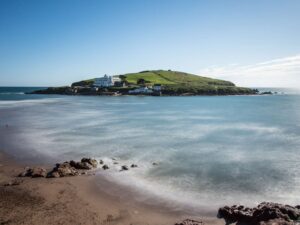
Chill South Devon enables people to benefit from the many health benefits of cold water immersion at some of the most stunning and restorative locations in the UK.

Chill Lincs and Notts CIC is an none for profit organisation. We offer a welcoming, supportive, and safe environment along the Lincolnshire coast.

CHILL Perthshire CIC, is a non profit organisation based in Crieff Perthshire. We provide CHILL courses in some of the most beautiful locations.
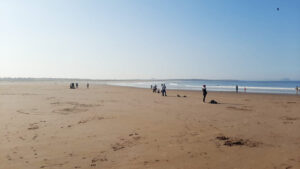
Making the most of the beautiful beaches of East Lothian, we offer open water swimming courses to provide everyone with a safe and supportive way to access all the health benefits of cold water immersion.
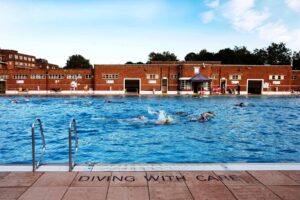
Starting in June 2021 we are proud to be working with Olympic Open Water Swimming Medalist Keri-Anne Payne to deliver Chill courses to the NHS.

Starting in June 2021 we are proud to be working with the Royal Cornwall Hospitals Trust to deliver Chill courses to the NHS
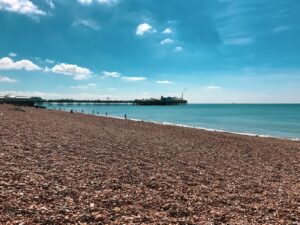
Brighton chill has a decade of experience of offering open water swimming courses and our own dedicated swimming centre close to the beach

Chill Therapy Bournemouth is a not for profit organisation dedicated to providing sea swimming courses as a form of therapy for people with anxiety and depression

We use the surrounding area which boasts some of the UK’s best beaches with golden sand and chalk cliffs.
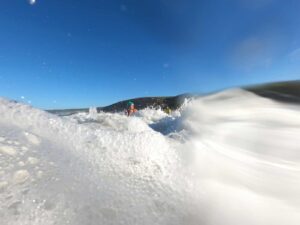
Chill started life here in North Devon and we’ve now run open water courses for over 200 people with lots more planned for this year
© 2021 Chill. All rights reserved
No part of this site may be reproduced without our written permission
Chill Therapy CIC, a not-for-profit company. Registered in England, company number: 12987779